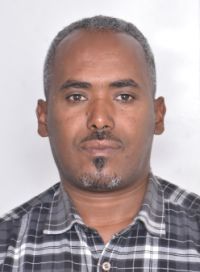Tesfaye Gudeta Gerba
Ethiopia, Ph.D Candidate, Peace and Development Studies, Haramaya University, Ethiopia 2022
Women in Intra-/Inter-Ethnic Conflicts and Peacemaking: The Case of Borana Women in Southern Oromiyaa, Ethiopia

Project Description
This project investigates the roles of Borana Oromo women in intra-/inter-ethnic conflicts and peacemaking. Ethnic conflicts can be actor. The actors play double: instigate conflict as well as make peace. Women are among the actors who have roles in conflicts and peacemaking. Women could intensify conflicts, and make peace. Women are also agents of conflict and promoters of peace. They instigate conflicts as well as make peace in their respective clans, ethnic groups, and communities. As a result, sustainable peace is dependent on the active participation and involvement of women in society. Women's engagement in peace processes as negotiators, mediators, and arbitrators improves the chances of long-term peace in this way. Notwithstanding this, the majority of material on Oromo women in ethnic conflicts and peacemaking is limited. Despite the fact that Oromo women have potential roles in customary institutions to ensure the attainment of women's rights protection, scholars have neglected to investigate their prospective responsibilities in ethnic conflicts. The research on Borana Oromo women's possible participation in intra-/inter-ethnic disputes and peacemaking was lacking (Dejene, 2009; Tuso, 2016). Borana women's informal participation in conflicts and peacemaking are also undervalued since their contributions are neglected by males. As a result of the severe absence of in-depth research and knowledge on women's participation in conflicts and peacemaking, false assumptions about women's potential role in conflicts and peacemaking are made. Thus, the goal of this research is to fill in the gaps on Oromo women's roles in intra-/inter-ethnic conflicts and peacemaking among the Borana Oromo. As a result, the study will focus on specific goals such as how Borana Oromo women address structural inequalities; participate and engage in intra-/inter-ethnic conflicts and peacemaking, as well as factors that challenge or hinder Oromo women's roles in ethnic conflicts and peacemaking in Borana. The research will take place at Borana, which is located on the southern fringe of Oromiyaa, Ethiopia's southern province.
Bio
Tesfaye Gudeta is a PhD student at Haramaya University's College of Social Sciences and Humanities. His study focuses on Borana Oromo women's roles in intra-/inter-ethnic conflicts and peacemaking. For the last 9 years he has contributed teach on English linguistics, sociolinguistics, and conflict transformation, theories of ethnic conflicts, gender, conflict and peace at Haramaya University Ethiopia. He has been doing researchers individually and in team on topics such as battling to Become English-Literate in Semi-Pastoral Society of Eastern Ethiopia, the semantics and pragmatics of Oromo personal names, Human trafficking, sociopolitical Role of Oromo Women in Oromo Traditions, Gadaa Laws and their contribution to the maintenance of Peace, and Environment and Aesthetic Values of the Oromo. He has also worked as a program coordinator, associate dean of the college, and assistant coordinator for the HU-UIBK Partnership for Strengthening Institutional Capacity in Peacebuilding and Conflict Transformation project (PSICPCT). Mr. Tesfaye has a master's degree in linguistics from Addis Ababa University and a bachelor's degree in English from Jimma University in Ethiopia. He's also participated in a variety of trainings and workshops, including post-war transitions and avoiding a return to war, conflict transformation and Peace psychology, introduction to many peaces, theatre for living workshop and conflict transformation, conflict analysis and peace work, conflict prevention and management, online learning for EFL educators, academic writing skills, publication and SPSS, and leadership and change management.
The Foundation acknowledges that Tesfaye Gudeta Gerba has successfully completed his project.
